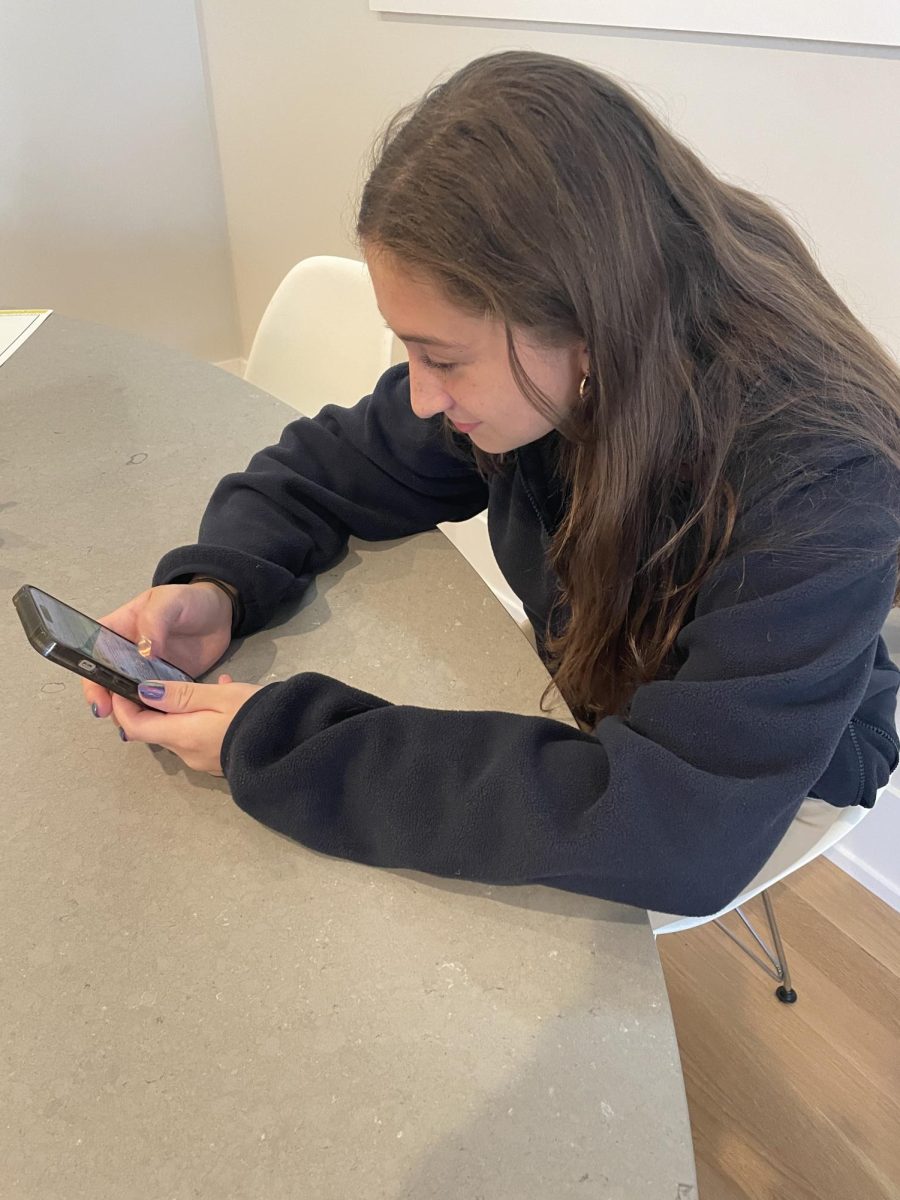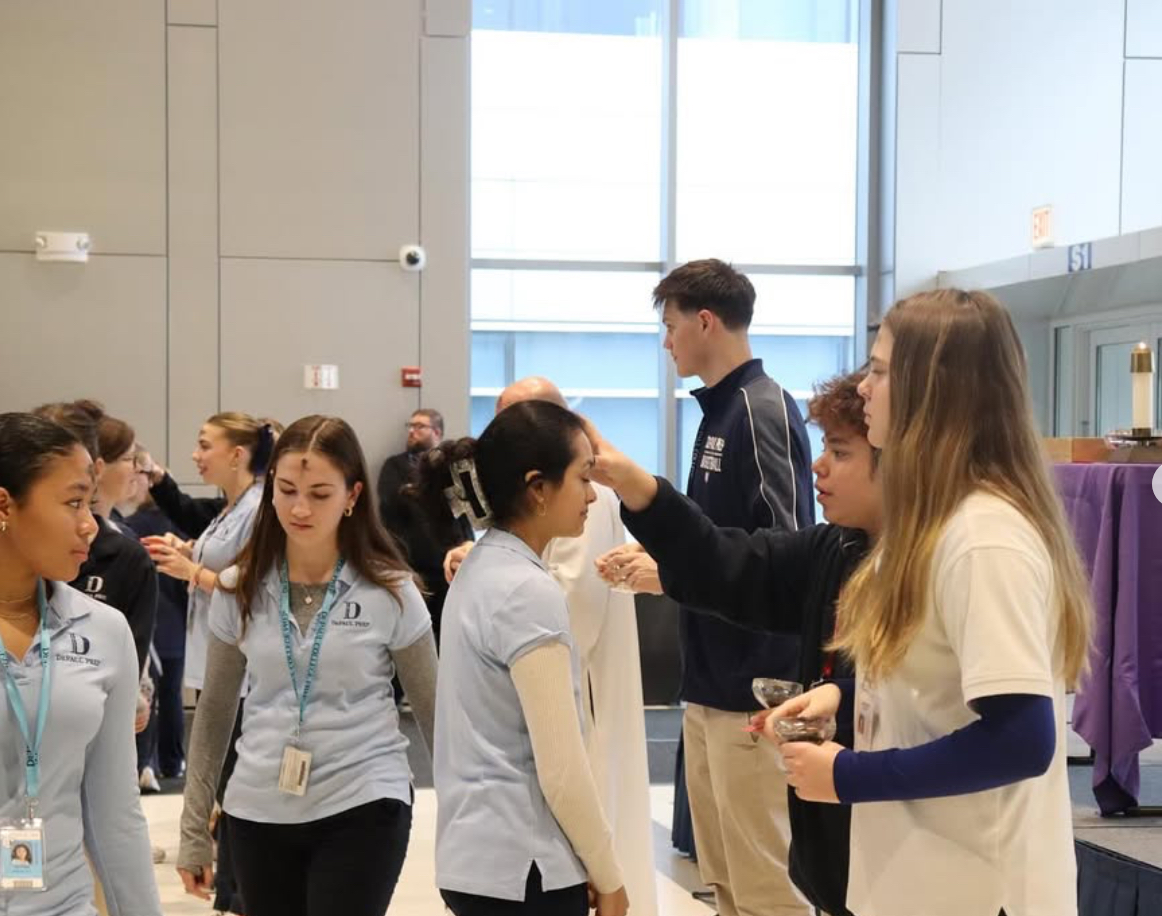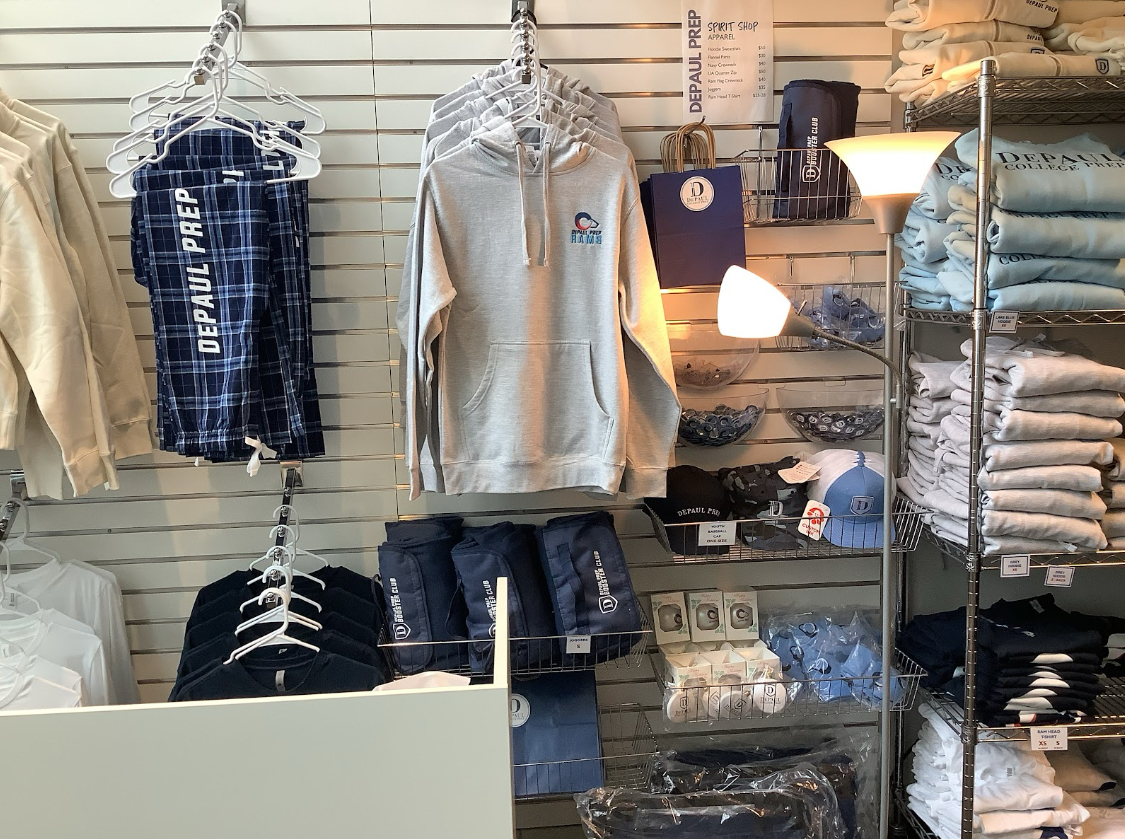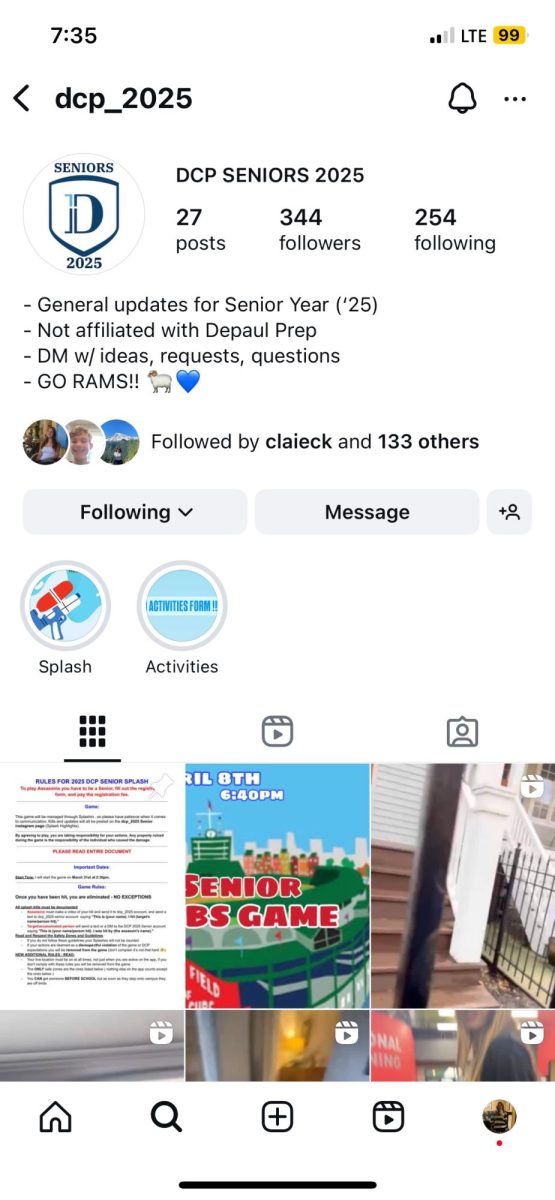As students returned to school for the 2024-2025 school year this past August, a noticeable change was made regarding the smartphone. As stated in the DePaul Prep student handbook, cell phones and all electronics must be stored in student’s lockers, not anywhere on their person, during school hours, with the penalty for violating this policy — a Saturday detention.
This change comes from a long-standing effort by deans and administrators to combat the rise of cell phone usage during the school day, Assistant Dean of Students Ricardo Cotto said. Administration and teachers alike noticed students on phones in hallways, lunchrooms, bathrooms and classrooms, despite their usage being banned. This is a noticeable change from the cell phone policy of previous years, where students were allowed to keep their phone on their person at any time, as long as it was not being used.
The policy change was motivated primarily by increasing research about the negative impacts of cell phones, especially on young people and teenagers, as well as concern about the impacts of phone usage on the DePaul Prep community. The prevalence of cell phones and social media among younger generations is something that has been shown to impact social skills, focus and the ability to form relationships, said Cotto.
When this change was first introduced to faculty, parents and students prior to the beginning of the school year, Assistant Dean of Students Michael Rabideau said support was very positive, with the announcement receiving a “standing ovation” from staff. While some parents raised concerns about safety, overall the “silence spoke volumes” in terms of community support for the new policy, Rabideau said.
“There’s so much science that is emerging on how distracting these things are,” said Rabideau.
Spanish teacher Clare Jorgensen agreed, saying that with the implementation of the new phone policy, students seem “more focused on what’s actually happening in class.”
In response to concerns about safety, especially students having access to their phones in case of an emergency, DePaul Prep has “doubled down” on safety procedures, said Rabideau. The Raptor safety and alert system, used by DePaul Prep, can alert teachers and faculty about emergency situations, help account for students and communicate with emergency services.
Phone usage has significantly decreased since the implementation of the new policy, said Rabideau, something that has been noticed by staff and administration alike.
Jessie Foley, an English teacher in her second year at DePaul, said that she’s noticed less students hiding their phones in books during independent reading, which “breaks my heart as an English teacher.”
Sustainable Urban Food Systems and Culinary Arts teacher Melissa Flynn said she “spends much less time telling kids to put their phones away” after the policy was implemented.
While the main goal of the policy was to decrease phone usage, several other benefits have been noticed. Instances of cheating have been reduced, as well as an improvement in the social environment around the school, says Cotto.
According to Cotto, there is “a whole different vibe” in the hallways and lunchrooms, as phone usage is reduced. He said he has noticed students interacting with each other more and less device usage overall, leading to more social interaction among students. Freshman Iris Gaeth said the phone policy is “annoying, but makes sense” to increase productivity.
DePaul Prep’s new phone policy is far from unique. Schools in New York City and Los Angeles have begun to implement similar policies, and Cotto and Rabideau both said they foresee cell phone free schools becoming the norm in the close future.







